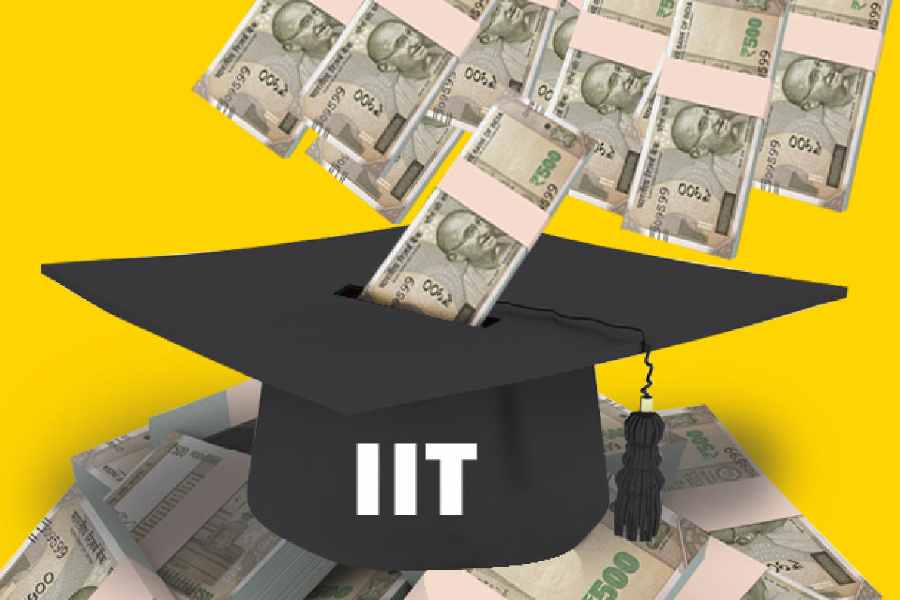The requirement at premier central tech schools that new students pay the first semester fees immediately after selection is hurting impoverished families because education loans cannot be obtained so early, several parents said.
To secure an education loan from an Indian bank, a student must produce documents such as a certificate from the institute saying they are its student, an identity card, a document showing the fee structure, and details of payments already made.
This means that only if the institute defers the payment of the first-semester fee by a few weeks after admission can the student pay it after securing an education loan. Such leeway becomes more crucial in the case of premier engineering institutes because their fees are high.
However, several parents said that it’s these institutes that require upfront payment of the fees — usually, a part of it during the counselling process and the rest at its conclusion — that is, even before the actual admission.
Students who clear the JEE Main take part in a common counselling process conducted by the Central Seat Allocation Board (CSAB) for admission to the NITs, IIITs and engineering courses at central universities.
Those who clear the JEE Advanced take part in counselling by the Joint Seat Allocation Authority (JoSAA) for admission to the IITs, NITs and some other centrally funded institutions.
The students have to pay ₹35,000 each — a ₹5,000 processing fee and ₹30,000 towards the semester fee to block the seat — in the JoSAA counselling immediately
after selection.
After all the rounds of counselling have ended, they have to pay the rest of the semester (and hostel) fees, although the admission would still be a few days away.
Those taking part in CSAB counselling pay ₹45,000 — ₹5,000 towards processing and ₹40,000 as a partial admission fee — and the remaining semester fees at the end of the entire counselling process for everyone.
The father of an IIT entrant said he had to pay ₹1.5 lakh before the actual admission this year.
“We paid ₹35,000 first. Then we were asked to pay around ₹1.2 lakh including the hostel fees. After the online payment, we went to the campus and my son secured admission,” he said.
Another parent, Prakash Kumar, whose son secured an engineering seat at a central university, said he had to pay ₹77,000 — an initial ₹45,000 followed by another ₹32,000 as the remaining semester fees — during and after the CSAB counselling, and before the actual admission.
“I arranged the funds with difficulty. Poor students cannot access higher studies at premier institutions because of the provision of upfront payment,” he said.
“The provision for education loans becomes meaningless if you are struggling to clear the first barrier of upfront payment.”
Kumar said the interest on education loans was 9.5 per cent. The education ministry has a Central Sector Interest Subsidy Scheme — for interest-free education loans — but the eligibility criterion is a parental income of ₹4.5 lakh a year or less.
This criterion, dating from the scheme’s introduction in 2009, has remained unchanged although the OBC creamy layer cut-off has increased during this period from ₹4.5 lakh a year to ₹8 lakh a year.
“Only a family earning less than Rs 37,500 a month is eligible (for the loan subsidy). This means the child of a Grade IV government employee is ineligible,” Kumar said.
An email was sent to higher education secretary Sanjay Murthy and authorities of the JoSAA and the CSAB seeking their comments on the parents’ concerns about upfront payment and the unchanged income criterion for interest-free loans. Their responses are awaited.
A JoSAA official said some students used to block seats after selection and eventually pull out, leading to vacancies. The upfront payments are meant to pre-empt
such practices.










